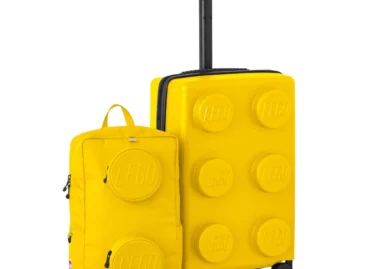CSAOSZ: here is the evaluation of the level of the EPR fee items, in the light of the items of the environmental protection product fee
In the 81st issue of the Magyar Közlöny, published on June 2, 2023, the ministerial decree determining the fees for extended producer responsibility was released with a two-day delay compared to the promised deadline.
Here are all the details:

Among the fees specified in the decree, it can be observed that those related to packaging show an increase of 1.17 to 9.79 times compared to the fees applied so far to packaging materials, which only partially served the fulfillment of environmental objectives, as defined in the Environmental Product Fee Act.
According to data from the National Tax and Customs Administration (NAV), out of the 42.5 million Hungarian forints of product fees paid for packaging materials in 2021, the state budget planned a net expenditure of 6.9 million Hungarian forints for recycling, according to the Public Service Non-profit Company for Hungarian Waste Management (OGyHT).
In contrast, the annual EPR (extended producer responsibility) fee obligation for packaging emissions is expected to reach 240 million Hungarian forints.
Based on the knowledge of the fees, the following conclusions can be drawn:
The actual costs of waste management, which have been partially supervised and financed by the state since 2012, are not known to the government, or if they are known, they are disregarded; otherwise, such a significant fee increase could not have been approved.
With the amendment of the Environmental Product Fee Act in 2022, the Government implied to economic actors that environmental financial burdens would not increase since the EPR fee can be deducted from the product fee. However, it added as a side note that if the EPR exceeds the product fee, the payable amount would be 0 HUF/kg.
The question arises whether the legislator misled economic actors or lost control and supervision in determining the EPR fees.
Based on the decree, it can be stated that the regulation on environmental product fees has become obsolete and its maintenance is merely an administrative burden for both the economy and the tax authority.
Due to the forced introduction of a non-EU conforming concession system and the resulting lack of preparation, the fees were determined from unchecked and unaudited initial data.
Related news
NAV: the procedure for clarifying the employment relationship will come into effect from July
The National Tax and Customs Administration (NAV) will expand its…
Read more >Packaging changes color when food spoils – new invention could revolutionize the fight against food waste
Three young Spanish people, Pilar Granado, Pablo Sosa Domínguez and…
Read more >NAV has published information regarding travel luggage
The National Tax and Customs Administration (NAV) has published a…
Read more >Related news
GKI analysis: Why do Hungarian households live more poorly than anyone else in the EU?
Imagine that the residents of every EU country shop in…
Read more >KSH: industrial producer prices decreased by 0.7 percent in May 2025 compared to the previous month, and increased by an average of 6.9 percent compared to a year earlier
In May 2025, industrial producer prices were 6.9 percent higher…
Read more >Consumption drives the economy
According to the latest forecast by the Balance Institute, the…
Read more >






